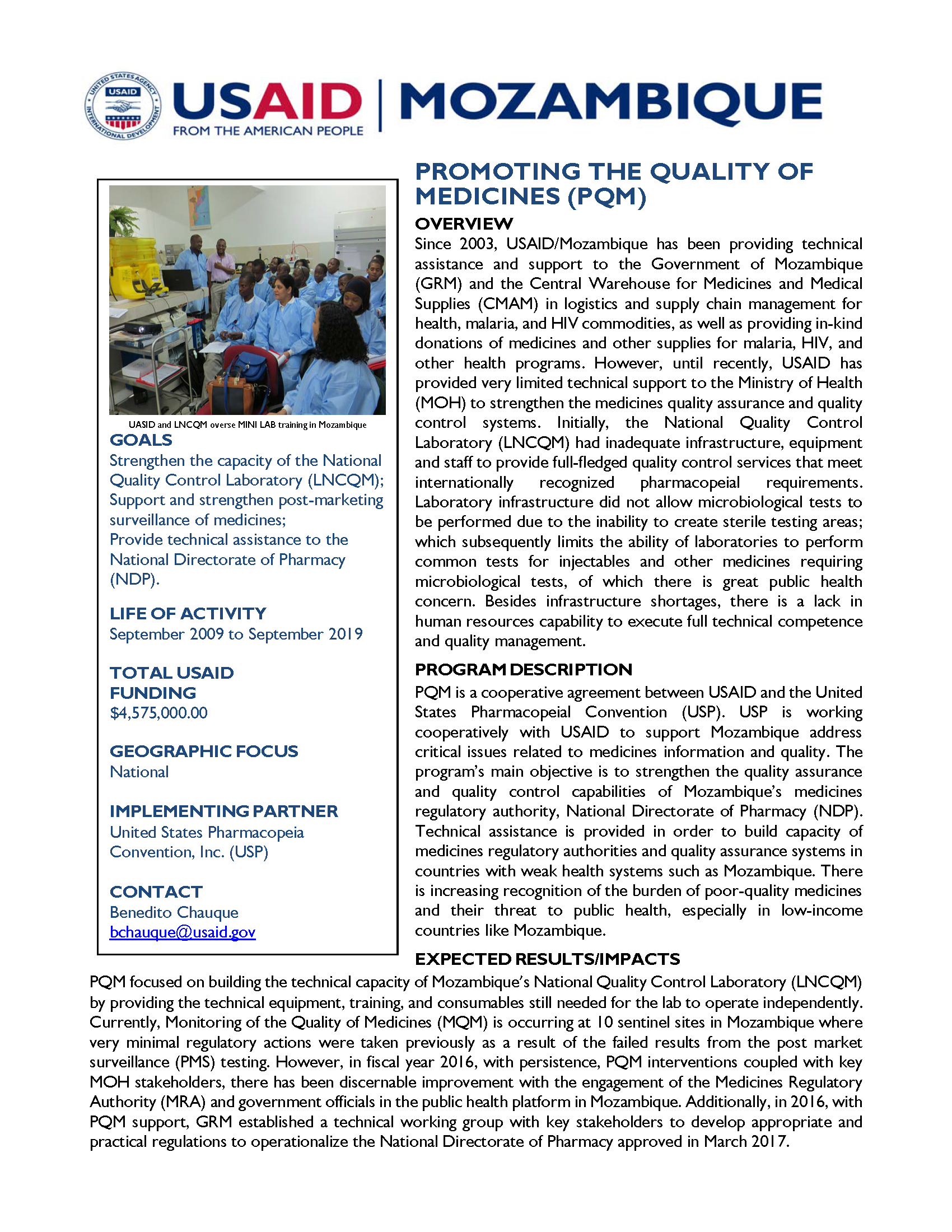Speeches Shim
OVERVIEW
Since 2003, USAID/Mozambique has been providing technical assistance and support to the Government of Mozambique (GRM) and the Central Warehouse for Medicines and Medical Supplies (CMAM) in logistics and supply chain management for health, malaria, and HIV commodities, as well as providing in-kind donations of medicines and other supplies for malaria, HIV, and other health programs. However, until recently, USAID has provided very limited technical support to the Ministry of Health (MOH) to strengthen the medicines quality assurance and quality control systems. Initially, the National Quality Control Laboratory (LNCQM) had inadequate infrastructure, equipment and staff to provide full-fledged quality control services that meet internationally recognized pharmacopeial requirements. Laboratory infrastructure did not allow microbiological tests to be performed due to the inability to create sterile testing areas; which subsequently limits the ability of laboratories to perform common tests for injectables and other medicines requiring microbiological tests, of which there is great public health concern. Besides infrastructure shortages, there is a lack in human resources capability to execute full technical competence and quality management.
PROGRAM DESCRIPTION
PQM is a cooperative agreement between USAID and the United States Pharmacopeial Convention (USP). USP is working cooperatively with USAID to support Mozambique address critical issues related to medicines information and quality. The program’s main objective is to strengthen the quality assurance and quality control capabilities of Mozambique’s medicines regulatory authority, National Directorate of Pharmacy (NDP). Technical assistance is provided in order to build capacity of medicines regulatory authorities and quality assurance systems in countries with weak health systems such as Mozambique. There is increasing recognition of the burden of poor-quality medicines and their threat to public health, especially in low-income countries like Mozambique.
EXPECTED RESULTS/IMPACTS
PQM focused on building the technical capacity of Mozambique’s National Quality Control Laboratory (LNCQM) by providing the technical equipment, training, and consumables still needed for the lab to operate independently. Currently, Monitoring of the Quality of Medicines (MQM) is occurring at 10 sentinel sites in Mozambique where very minimal regulatory actions were taken previously as a result of the failed results from the post market surveillance (PMS) testing. However, in fiscal year 2016, with persistence, PQM interventions coupled with key MOH stakeholders, there has been discernable improvement with the engagement of the Medicines Regulatory Authority (MRA) and government officials in the public health platform in Mozambique. Additionally, in 2016, with PQM support, GRM established a technical working group with key stakeholders to develop appropriate and practical regulations to operationalize the National Directorate of Pharmacy approved in March 2017.


Comment
Make a general inquiry or suggest an improvement.